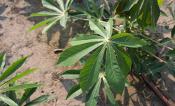
RIPE research proves potential for measuring root biomass throughout growing season
A team from the University of Illinois has proven how important it is to monitor the biomass of root crops throughout the season rather than relying on end-of-season measurements to analyze growth using ground penetrating radar.

Bill and Melinda Gates Agricultural Innovations extends RIPE funding with $34M grant
Bill & Melinda Gates Agricultural Innovations has awarded a grant of $34 million to the Realizing Increased Photosynthetic Efficiency project.
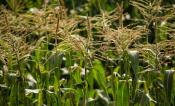
RIPE researchers show the cause of productivity loss in the fluctuating light of maize crop canopies
Illinois RIPE team shows increased bundle-sheath leakiness of CO2 during photosynthetic induction shows a lack of coordination between the C4 and C3 cycles.
RIPE researchers report faster screening of photoprotection in crops
In a recent study, published in JoVE, RIPE researchers from the University of Illinois and the University of Cambridge reported a high-throughput method for screening rates of NPQ relaxation in field grown plants.
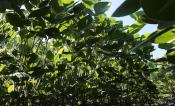
RIPE researchers prove bioengineering better photosynthesis increases yields in food crops for the first time ever
For the first time, RIPE researchers have proven that multigene bioengineering of photosynthesis increases the yield of a major food crop in field trials.
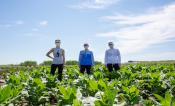
Researchers show potential for improved water-use efficiency in field-grown plants
By overexpressing a sugar-sensing enzyme, called hexokinase, in field-grown tobacco plants, researchers could improve intrinsic water-use efficiency without decreasing photosynthetic rates or biomass production.
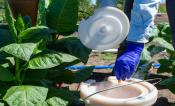
No photosynthetic improvement in ictB transformants in field-grown model crop
Illinois researchers, in collaboration with Essex, tested four tobacco ictB transformants for photosynthetic performance in field-based conditions.
Photosynthesis unaffected by increasing carbon dioxide channels in plant membranes
A team from the Australian National University (ANU) investigated the effects of increasing the amount of carbon dioxide channels in plant membranes.

RIPE’s Ting Lu elected to the 2022 class of the AIMBE College of Fellows
Bioengineering professor Ting Lu to the AIMBE 2022 class of the College of Fellows.
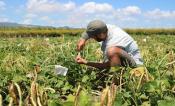
Collaborative RIPE team prove leaf width-biomass correlations in cowpea
In a collaboration between RIPE researchers and cowpea breeders from Ahmadu Bello University, and the International Institute of Tropical Agriculture, the width of cowpea leaves was found to correlate with above-ground biomass across diverse germplasm and environmental conditions.

BBC’s Follow the Food to feature RIPE researcher’s Rock Dust project
In BBC's Follow the Food's upcoming episode “Turning Back The Climate Clock,” the series focuses on the rock dust projects, led by Research Plant Physiologist for the U.S. Department of Agriculture, Agricultural Research Service (USDA-ARS) Carl Bernacchi.

Illinois team significantly improves BioCro software for growing virtual crops
A team from the University of Illinois has revamped the popular crop growth simulation software BioCro, making it a more user-friendly and efficient way to predict crop yield. The updated version, BioCro II, allows modelers to use the technology much more easily and includes faster and more accurate algorithms.
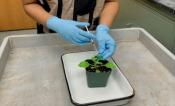
RIPE team develops toolkit for synthetic biology
A team from Louisiana State University (LSU) has developed a number of synthetic biology tools for plant geneticists to use to drive the expression of genes.
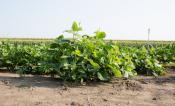
Fickle sunshine slows down Rubisco and limits photosynthetic productivity of crops
Researchers from Lancaster University are working to improve the sustainable productivity of key crops in sub-Saharan Africa have discovered a new imperfection in the way Rubisco functions in cowpea and believe this imperfection is likely shared with other crops.
